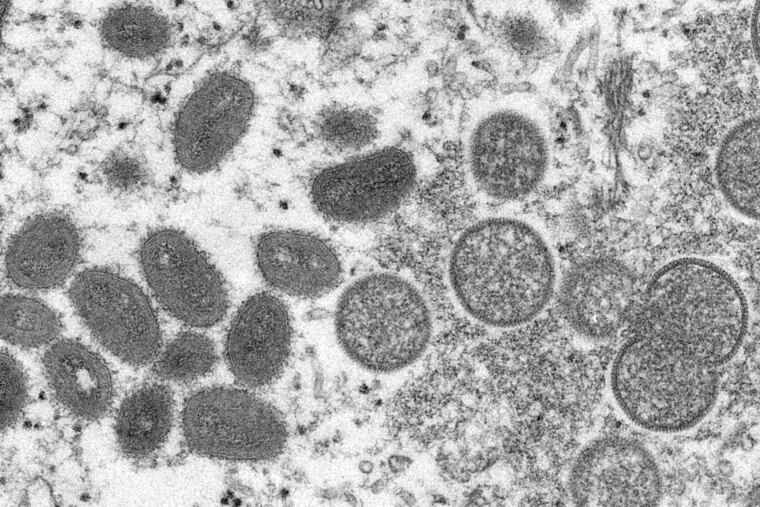
I know how it feels — like the hits keep on coming.
Just when we thought things were getting better, with COVID-19 cases dropping regionally and the vaccine appearing close to approval for young children, news broke Thursday of a case of something called “monkeypox” right here in Philadelphia.
It’s understandable to wonder if we are living in a disaster movie. Is it time to stock up on toilet paper, eggs, and binge-watch Netflix shows again?
Fortunately, this outbreak is very different from the one that caused the COVID pandemic. This virus is much less dangerous to large groups of people. Yes, monkeypox is a close relative to the virus that caused smallpox, but fortunately, there are a number of important differences.
» READ MORE: Philly’s monkeypox patient, now one of 21 in the U.S., has been offered a vaccine
Monkeypox normally infects animals in Africa: Rodents, despite the name, are primary carriers, although primates are another target. The virus does spill over into humans regularly, though these outbreaks have always been relatively small and short-lived. It is also worth noting that monkeypox does not spread easily from one person to another, nor does it cause disease as severe as its relative, smallpox.
There are other reasons to be hopeful.
Poxviruses are genetically stable and well known; we have decades of knowledge of the strain that is causing these cases. The vaccine that was used to prevent smallpox for centuries also provides protection against other poxviruses, meaning that many people are already immune.
There are two main strains of monkeypox. The one currently causing disease is the milder form, with a fatality rate that tops out at 1%. The main way this virus is spreading now appears to be close contact (and given that casual romantic encounters are a risk factor, very close contact). This makes sense, as the characteristic lesions of the disease contain virus and can be the source of spread. If you haven’t been around someone who has an active case, your risk level is extremely low.
If you are one of the very few in the U.S. who is unlucky enough to be infected with monkeypox, the more good news is that there are multiple drugs already approved to treat the disease. In a worst-case scenario, there already is a vaccine approved for monkeypox. The vaccine — a safer version of the inoculation used to treat smallpox — was tested and developed after 9/11 when there were widespread fears of bioterror attacks.
This isn’t the first time we’ve had a monkeypox scare in our country, either. In 2003, 47 people became ill after handling infected imported rodents. Just like today, those cases were traced to the milder strain and there were no fatalities.
It is understandable that this outbreak is unnerving and scaring people. Tensions are still high from COVID, and this virus is appearing in new and unexpected places. However, some of this is because of advances in diagnosis and possibly even a result of a heightened awareness of rare viral infections.
» READ MORE: No, we’re not ‘done’ with COVID-19 yet | Opinion
In earlier years, with fewer tests done and less advanced testing, an outbreak like this could have been missed. Recent headlines state “cases double in U.S.,” but the figures are small — increasing only from 10 to a total of 21. Much can change and anything can happen, but all indications are that this will not become a large-scale outbreak or a threat to the general public.
It’s good to be aware, and it’s right to be cautious. We should remember, though: COVID-19 is still the danger.
Brian DeHaven is an associate professor of biology and the director of pre-health advising and postbaccalaureate programs at La Salle University. He spent a decade studying poxviruses, including monkeypox.